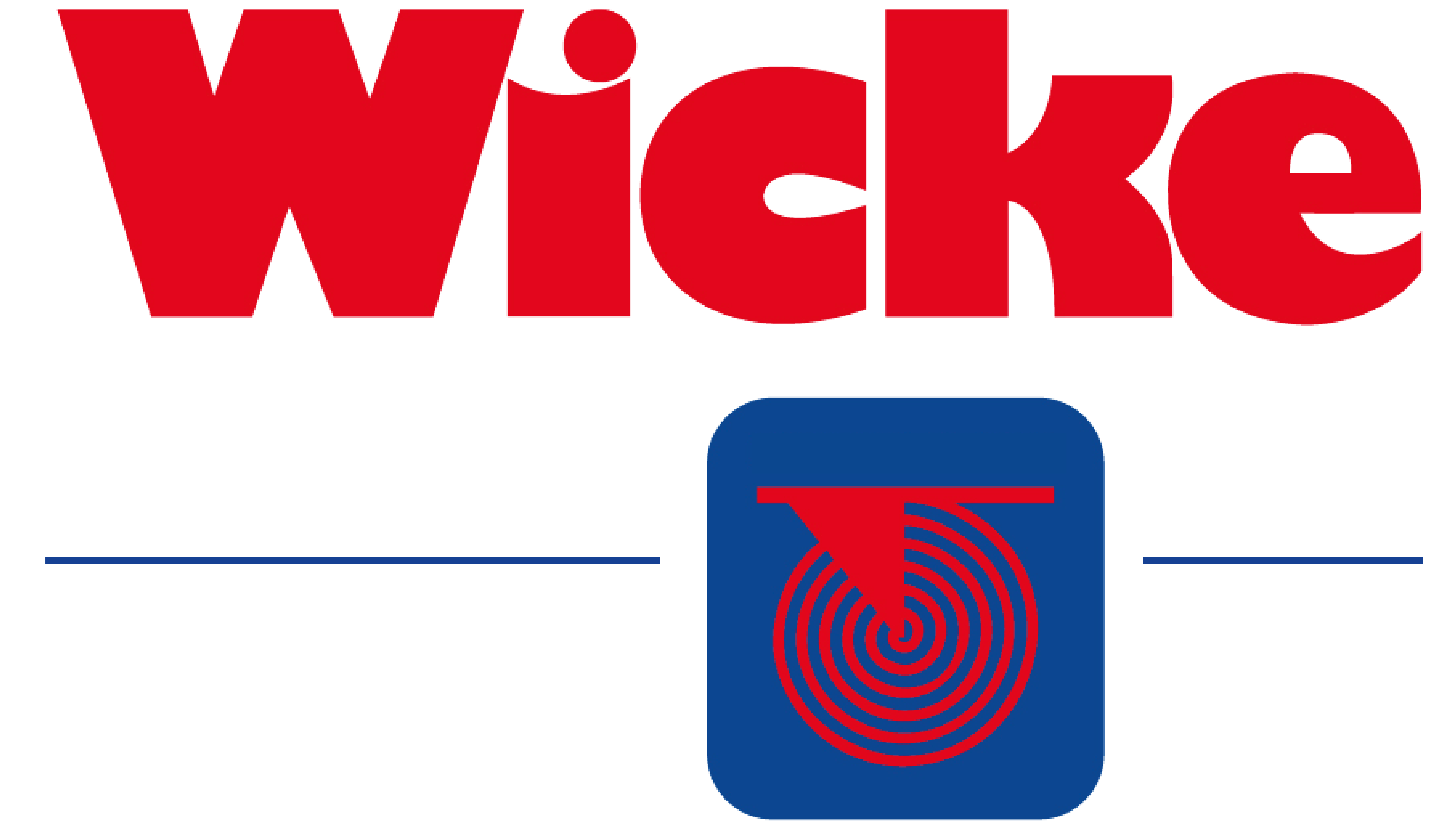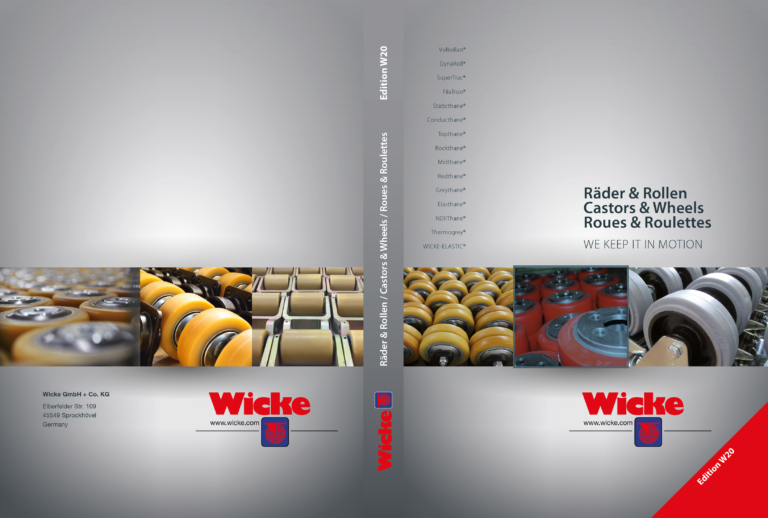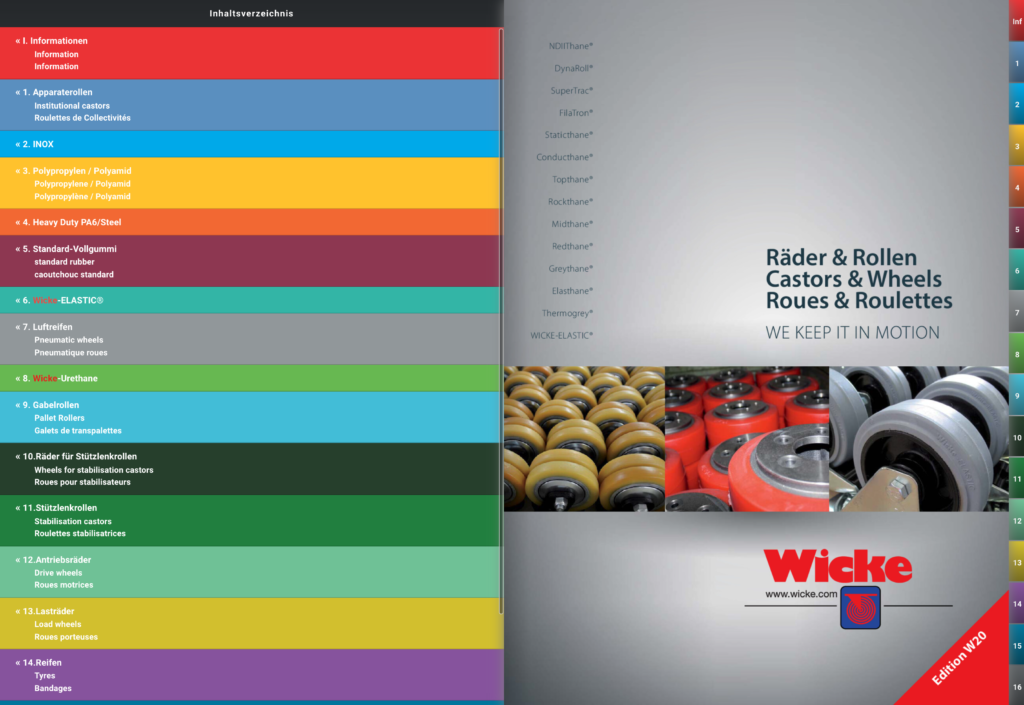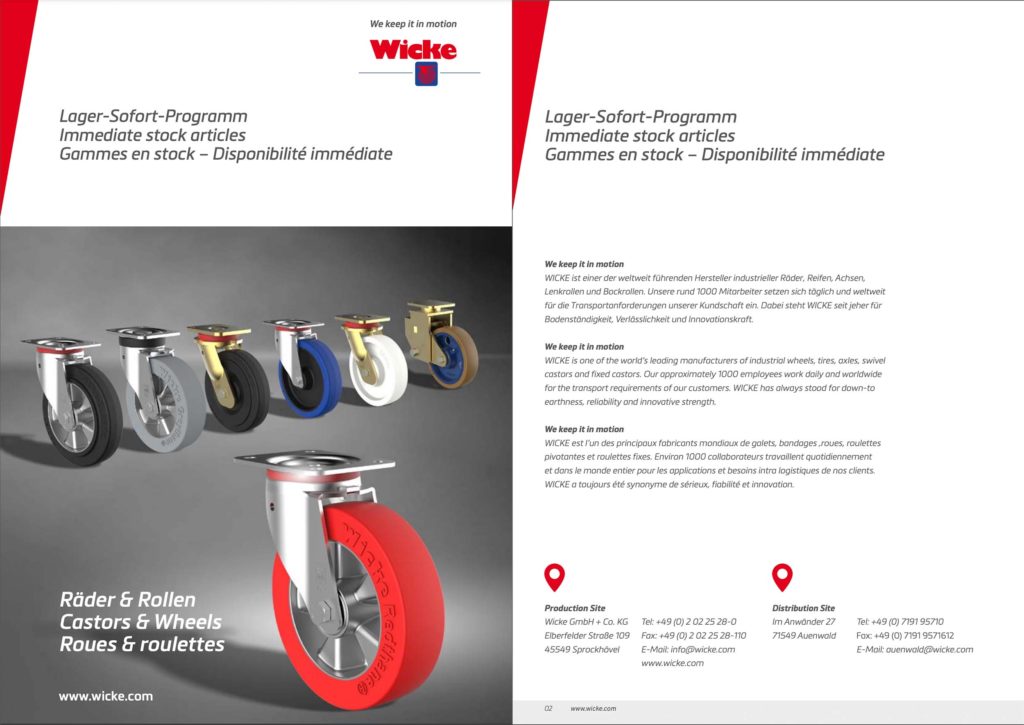General terms and conditions of sale and delivery
- General
Only the general terms and conditions of sale and delivery below shall apply to all transactions. Terms and conditions of purchase contrary or differing from these, or other restrictions imposed by the Buyer shall not be recognised, unless the Seller has given his express consent to them in writing in an individual case.
- Offer
- Illustrations, diagrams, colours, stated weights and dimensions which are included in price lists and other printed matter shall only count as being approximations, in so far as no express statement has been made that they are binding. The Supplier shall reserve title and copyright to cost estimates, diagrams and other documents; third parties must not be allowed access to them.
- The Orderor shall also bear full responsibility for documents he hands over to the Supplier with regard to the breach of third party industrial property rights. The Supplier shall only be entitled to allow third parties access to those plans which have been designated as confidential by the Orderor with the consent of the Orderor.
- Scope of delivery
- The Supplier’s written order confirmation shall define the scope of the delivery. Should our confirmation differ from the order in any way, we are to be notified immediately. Otherwise the delivery shall be in accordance with our statements. We shall not recognise complaints based on this reason.
- Partial deliveries shall be allowed.
- The Supplier shall only supply a sample for an additional charge at the prices valid at that time.
- Over delivery and under delivery, call-off orders
- Over delivery and under delivery of up to 10% shall be allowed.
- Call-off orders have to be made within 6 months. They shall be invoiced at the Supplier’s prices valid at that time.
- Price and payment
- In the absence of a separate agreement prices shall be regarded as being ex-works, including loading in the works, but excluding packing however. Value added tax at the rates in force at that time shall have to be added to the prices. Orders for which fixed prices are not expressly agreed shall be invoiced at the prices valid on the day of delivery. If a significant amendment occurs to order-related cost factors (e.g. wages, starting materials, power), the agreed price can consequently be adjusted as appropriate in line with the affect of these cost factors by a reasonable amount.
- Provided that nothing has been expressly agreed to the contrary, payments are to be paid without deductions to the Supplier no later than 30 days from the date of invoice – this shall apply for partial deliveries too.
- A prompt payment discount of 2 % shall be allowed for payment within 14 days from the date of invoice.
- The retention of payments or the offsetting on account of any counter claims the Orderor may assert which are contested by the Supplier shall not be allowed.
- Bills of exchange will only be accepted for the sake of fulfilment, however, without any guarantee that they will not be protested by agreement, and subject to the precondition that they can be discounted. Discount fees shall be invoiced from the date on which the invoiced sum is due onwards. In spite of this we shall reserve the right to return bills of exchange during the term and demand that our invoices are paid in cash, if specific circumstances recommend that this is the obvious thing to do.
- If payments are not made on time we shall invoice interest at 4% above the EURO reference rate which has been laid down by the European Central Bank and which serves as a discount rate.
- Delivery period
- Delivery periods stated shall only be regarded as being approximate. The delivery period shall begin when the order confirmation is dispatched. The delivery period shall be regarded as observed if the goods have left the works or if notification has been made that the goods are ready for dispatch before the delivery period expires.
- The delivery period shall be extended as appropriate, if measures are taken as a result of labour disputes, in particular strike and lock out as well as the occurrence of unforeseen obstructions which are beyond the control of the Supplier, provided that it can be proved that such obstructions affect the completion and delivery of the goods significantly. This shall also apply if the circumstances occur to the sub-supplier. The Supplier shall not be responsible for the circumstances described above even in those cases in which they occur when he is already in default with delivery. In important cases the Supplier shall notify the Orderor of the beginning and end of such obstructions as soon as possible. If an extension of the delivery period should become unreasonable for the Orderor, he shall consequently be entitled to withdraw from the contract, provided that the contract has not yet been fulfilled. If the delivery is frustrated as a result of the aforementioned circumstances, the Supplier may withdraw from the contract, provided that it has not yet been fulfilled.
- The Orderor shall not be entitled to any claims for compensation for damages in these and all other cases of delayed delivery, even after the expiry of any subsequent period which has been set by the Supplier for delivery. This shall not apply when there is compulsory liability for the Supplier in the event of him being guilty of intent or gross negligence.
- Compliance with the delivery period shall assume that the Orderor has fulfilled his contractual duties.
- Retention of title
- The Supplier shall reserve title to the goods until all his accounts against the Orderor from the business relationship between them have been settled, including accounts occurring in the future, and also those created by contracts concluded at the same time or subsequently. This shall also apply in those cases in which individual, or all, accounts by the Supplier have been entered in a current account and the balance of account has been struck and accepted. In the event that the Orderor is in breach of the contract, in particular in the event that he is in default with payment, the Supplier, having set a reasonable subsequent period for performance, shall be entitled to take back the goods. The Supplier shall only take back, or levy execution on, the goods if the (German) Consumer Credit Act does not apply. The Supplier shall only withdraw from the contract if he has expressly stated this in writing. In the event that execution is levied on the goods or if there is other third party interference, the Orderor shall have to notify the Supplier of this in writing without delay.
- The Orderor shall be entitled to resell the goods in the normal course of business. However, the Orderor shall assign here and now all his accounts accruing to him from reselling the goods to his buyers or to third parties, amounting to the sum of the invoice of the goods subject to the retention of title to the Supplier. The Orderor shall also be entitled to collect these accounts even after the assignment, as long as he abides by the contract and is not insolvent. The authority of the Supplier to collect the accounts himself shall not be affected by this; however, the Supplier shall undertake not to collect the accounts as long as the Orderor duly fulfils his payment obligations and is not insolvent. Otherwise the Supplier can, after setting a reasonable subsequent period for performance, demand that the Orderor announce to him the assigned claims and the identity of those parties owing them, and provide all the information required to collect the accounts, hand over the documents relating to the accounts and notify the debtors that the accounts have been assigned.
- If the assigned claim against the third party debtor has been entered into a current account, the respective net claim – including the final balance – shall consequently be assigned to the value of the individual assignment which counts.
- If the goods subject to a retention of title are processed or transformed, including together with other objects not belonging to the Supplier, the Supplier shall acquire co-ownership to the new goods at the time they are processed. Moreover, the same shall apply to the goods created by the processing as for the goods subject to a retention of title.
- The Supplier shall undertake to release securities to which he is entitled when the invoiced value of the goods subject to a retention of title exceeds the accounts to be secured by more than 20%, provided that these have not yet been settled.
- If a liability by the Supplier on the basis of a bill is justified in connection with the payment of the contract price by the Orderor, the retention of title, including its agreed special forms and other securities agreed as a security for payment shall not lapse before the bill is honoured by the Orderor as the drawee.
- Liability for physical and legal defects in the delivered goods
The Supplier shall be liable for physical defects with the exclusion of any other claims asserted against him, and irrespective of Section X, 3, as follows:
- All those parts which show a physical defect within 12 months of delivery as a result of a circumstance which existed prior to the passing of risk are to be repaired or exchanged for new parts free of charge at the equitable discretion and option of the Supplier. The Supplier is to be notified straight away in writing when such defects are identified.
- Physical defects – regardless of whatever legal reason – shall become time-barred after 12 months. This shall not apply if the defects are in a building or in components for a building and these have caused the physical defect. Notwithstanding Sentence 1, the statutory periods shall also apply for claims asserted in accordance with the Product Liability Act as well as in the event that the Supplier acts with intent or intent to deceive.
- No warranty shall be furnished for damage sustained from the following causes: unsuitable or improper use, faulty assembly by the Orderor or third party, natural wear and tear, faulty or negligent treatment, chemical or electrical affects, provided they are not attributable to the Supplier being at fault.
- Replaced parts shall become the property of the Supplier.
- The liability for the consequences arising from any modifications or repairs which may have been carried out improperly on the part of the Orderor or third party without the consent of the Supplier shall be excluded.
- The Orderor shall only be entitled to assert additional claims, in particular a claim for the compensation for damage which is not sustained by the delivered objects itself in the following cases: * Intent, * Gross negligence, * Loss of life, physical injury or damage to health * In the breach of significant contractual duties, in so far as the achievement of the contractual objective is jeopardised with regard to foreseeable damage, and damage which is typical for the contract, * In cases in which the Supplier shall be liable under the Product Liability Act, * – For defects which were maliciously concealed or if the Supplier had furnished a guarantee that they would not exist.
- Provided that nothing has been agreed to the contrary, the Supplier shall render his delivery unencumbered by third party proprietary rights and copyrights in Germany. Nevertheless, should there be a breach of a proprietary copyright, the Supplier shall either procure an appropriate right of use from the third party or modify the delivered object to such an extent that it is no longer in breach of a proprietary right. Provided that this is not possible for the Supplier at appropriate and reasonable terms and conditions, not only the Orderor, but also the Supplier shall be entitled to withdraw from the contract.
- If legal defects exist, the provisions of this Section VIII shall apply accordingly, whereby the Orderor’s claims shall only exist if he has notified the Supplier of any claims which may have been asserted by third parties without delay in writing; if he does not recognise a asserted breach of contract either directly or indirectly; if the Supplier retains all the alternative defence options without restriction; if the legal breach is not based on the Orderor having modified the delivered object or having used it in a way not in compliance with the contract; or if the legal defect is attributable to an instruction issued by the Orderor.
Otherwise liability shall be excluded In the event of legal defects the following provisions shall also apply:
- Liability for secondary duties
If through the fault of the Supplier the goods can not be used in compliance with the contract by the Orderor as a result of suggestions or advice passed on prior to, or after, the contract being signed, as well as other contractual secondary duties not having been carried out completely or correctly, the arrangements in Sections VIII and X shall consequently apply accordingly. Other claims asserted by the Orderor shall be inadmissible.
- The Orderor’s right to withdraw from the contract and to reduce the purchase price, other liability on the part of the Supplier
- If the default in delivery exists within the meaning of Section VI and if the Orderor sets the Supplier in default an appropriate subsequent period to render performance and the subsequent period is not adhered to, the Orderor shall consequently be entitled to withdraw from the contract.
- The Orderor shall be entitled to withdraw from the contract if the Supplier allows a reasonable subsequent period set for him to carry out a repair or supply a replacement part with regard to a physical defect to elapse without rectifying the defect. The right of the Orderor to withdraw from the contract shall also exist in other cases in which the repair or replacement part supplied by the Supplier is unsuccessful. In the event that a defect is minor, the Orderor shall only be entitled to reduce the purchase price.
- The Orderor shall only be entitled to additional claims in the event of Section VIII, 6. Otherwise other claims, in particular those for serving notice of termination or reducing the purchase price as well as for the reimbursement of damages which have not been sustained by the goods themselves shall be inadmissible.
- The Supplier’s legal representatives, employees and assistants shall only bear personal liability for damage caused by them in the course of the operational activity for the Supplier in the event of intent. Otherwise personal liability shall be inadmissible.
- The costs of tools
- Only a proportion of the costs of the tools shall be invoiced as a matter of principle. They shall be invoiced separately from the goods.
- The Orderor shall not acquire any claim to the tools by paying a share of the costs for the tools; instead they shall remain the property, and in the possession, of the Supplier. The Supplier shall undertake to keep the tools in safe keeping for one year after the last delivery to the Orderor. If the Orderor notifies the Supplier before the end of this period that he shall be placing orders within a further year, the period for which the tools must be kept in safe keeping shall be extended by a further year. If no follow-up orders are placed in this time we shall be at liberty to dispose of the tools as we see fit.
- With regard to the costs for tools for orders which do not materialise, the following shall apply: for orders which are cancelled at the development stage or in the run-up stage, the Supplier shall reserve the right to invoice the costs he has incurred. These costs shall include:
- The tools on which work has begun and which have been invoiced shall be available for inspection for 4 weeks, and then they shall be scrapped.
- The Orderor shall not be entitled to inspect stage timetables and the design diagrams for the tools.
* the costs for the initial set of tools prior to the clearance for the sample * After the sample has been cleared, the costs for all the mass production tools, special devices and moulds depending on the amount of the intended monthly demand.
- Old goods
The proper disposal of old parts and other things no longer usable shall be incumbent upon the Orderor. In so far as the law provides for the contrary, the Orderor shall undertake to reach a reasonable agreement with the Seller with regard to treatment. The assumption should be made here that the parties to the contract shall avail themselves of the services of a third party to fulfil their obligations to treat the old goods.
- Place of jurisdiction
The place of fulfilment for all obligations created under the contractual relationship shall be Sprockhövel. The place of jurisdiction for all legal disputes arising from the contractual relationship shall be the local court and regional court in Wuppertal. These terms and conditions of sale and delivery shall be governed by German law (Civil Code [BGB] and Commercial Code [HGB]).




